The New NTU MBBS: Nurturing Future-Ready Doctors with a Heart for Patients
The world is on the cusp of a new era. Transformational changes are afoot brought about not just by the COVID experience, but also climate change, growing food wastage and health inequality. And so, we at the Lee Kong Chian School of Medicine are asking ourselves the hard questions.
How do we move with the changing times?
What disruptive forces and emerging technologies are affecting our lives?
How can medicine evolve alongside society?
We must prepare to navigate these challenges. It’s in our DNA. So, while we seek new scientific knowledge and uncover the unknown in our labs, we are preparing our doctor-trainees for healthcare and medicine of the future. Come August this year, LKCMedicine will launch our new MBBS curriculum, an enhancement of our award-winning programme to train the next generation of doctors.
Circumstances around the successful conclusion of the 2010 NTU-Imperial College London collaboration agreement to set up LKCMedicine presented an excellent opportunity to refresh and refocus. Ahead of 2028 when the agreement ends, LKCMedicine will commence the NTU MBBS programme from Academic Year 2024/25, with students graduating in 2029. For this, our Education team has further customised our curriculum to better address the needs and priorities of the evolving healthcare landscape in Singapore.
LKCMedicine Assistant Dean for Curriculum Lead, Associate Professor Faith Chia says that the NTU MBBS curriculum is continuously reviewed and updated to ensure its relevance in preparing medical graduates to meet the demands of a rapidly evolving healthcare landscape.
“Over a hundred faculty, students and alumni contributed to our curricular reform which aims to equip our graduates with the knowledge and skills to practice in our healthcare environment that is undergoing rapid change and advancement. However, our curriculum reform is not just about staying current. We want to nurture doctors who are not only skilled in the latest science and technology, but also resilient, adaptable, and firmly rooted in the foundations of medicine; empathetic communicators with expert clinical skills and compassion for their patients.”
With the refreshed curriculum, the NTU MBBS programme will actively respond to emerging initiatives such as Healthier SG by the Ministry of Health, as well as pertinent themes like Precision Medicine, the expanding use of technology, and Artificial Intelligence (AI) in healthcare.
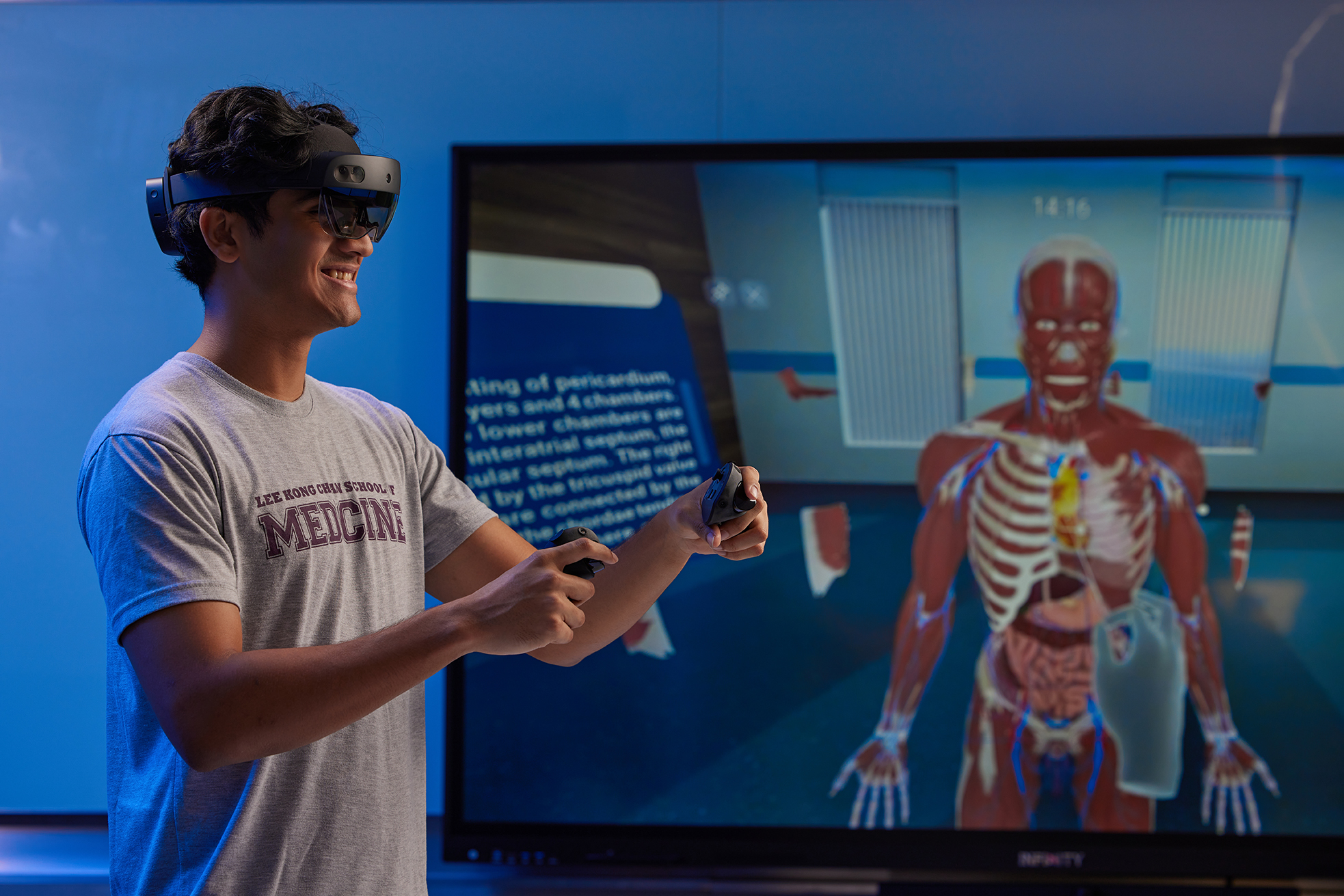
To ensure a well-rounded education, the tech-centric approach will be complemented by a deeper dive into medical humanities. This aspect of the curriculum aims to mould our students into medical professionals capable of navigating uncertainties and challenging situations in their practice. It instils a commitment to providing empathetic and patient-centred care, with an increased emphasis on ethical standards, professionalism, and patient safety. The overall aim is to equip students with the head and heart for medicine – caring, compassionate doctors who are proficient and confident users of technology.
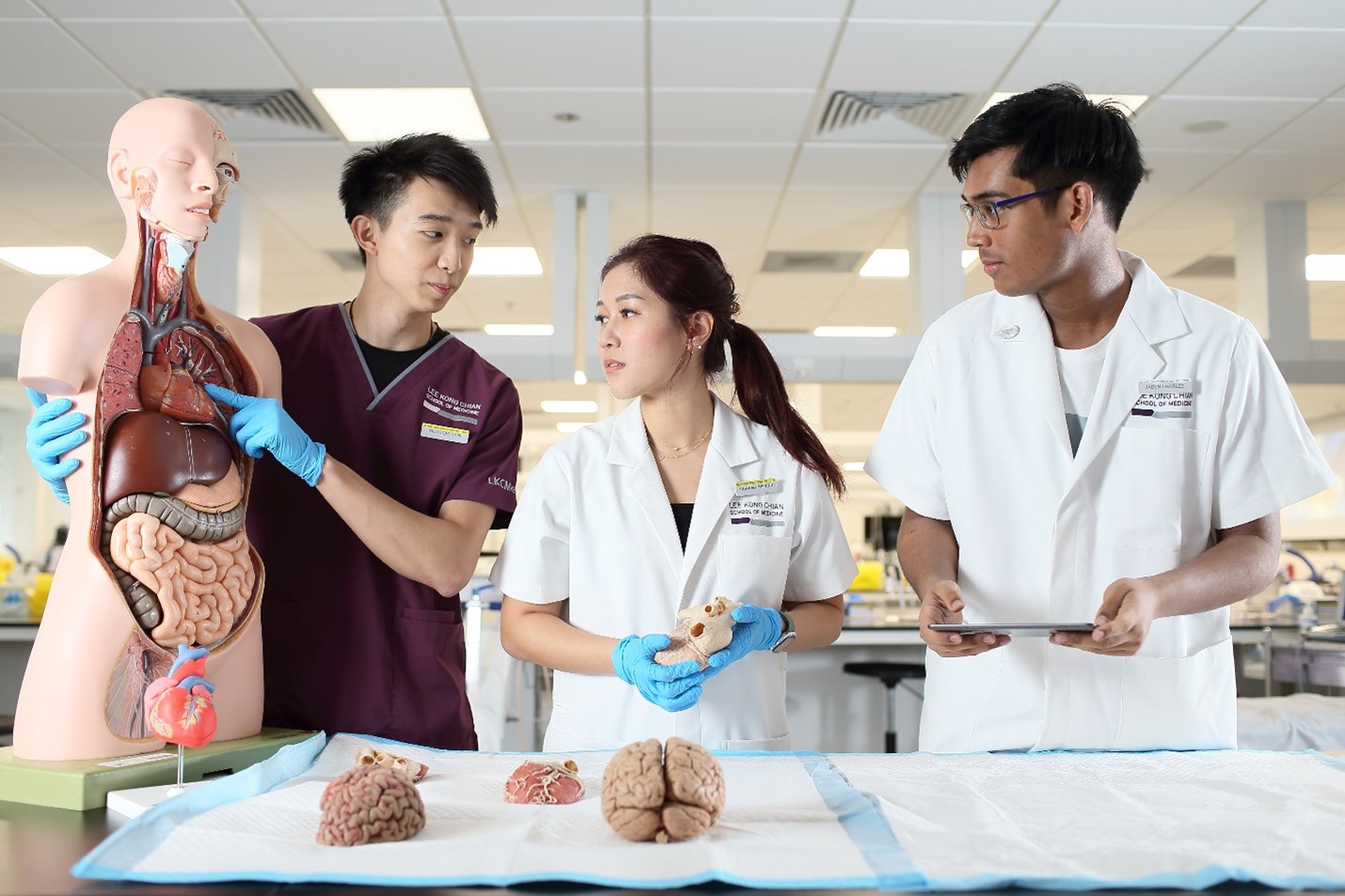
While retaining the strengths of the Imperial-NTU MBBS degree programme, the programme introduces enhancements to align with changes in healthcare and healthcare education both nationally and globally. Some of the major shifts and novel approaches that will take place in the enhanced NTU MBBS programme include:
a. Introduction of new learning outcomes
Incorporation of fresh learning outcomes and activities for digital health (including data science, data analytics, artificial intelligence, and machine learning), precision medicine, occupational health, and health equity. Most of these modules represent a completely new addition to the curriculum.
b. Introduction of cadaveric dissection
Introduction of cadaveric dissection for anatomy in Years 3 and 4 to emphasise clinical correlation with surgical knowledge.
c. Organisation of an MBBS research day
Organisation of an MBBS research day to allow students to experience the entire research journey, from initiation to presentation of their work.
d. Addition of community health partners to primary care settings
Addition of involvement of community health partners to our teaching of the primary care settings, enhancing the scope and relevance of the practical experiences of our students at various years and during their electives.
e. Focusing on transition management
Management of transition for our students from campus to clinic occurring at Years 2 – 3 and later from School to practice at the end of Year 5 through seminars and bootcamps.
f. Vertical integration of medical humanities
Vertical integration of medical humanities across Years 1 to 5 is a distinctive feature; the first to be implemented in a medical school.
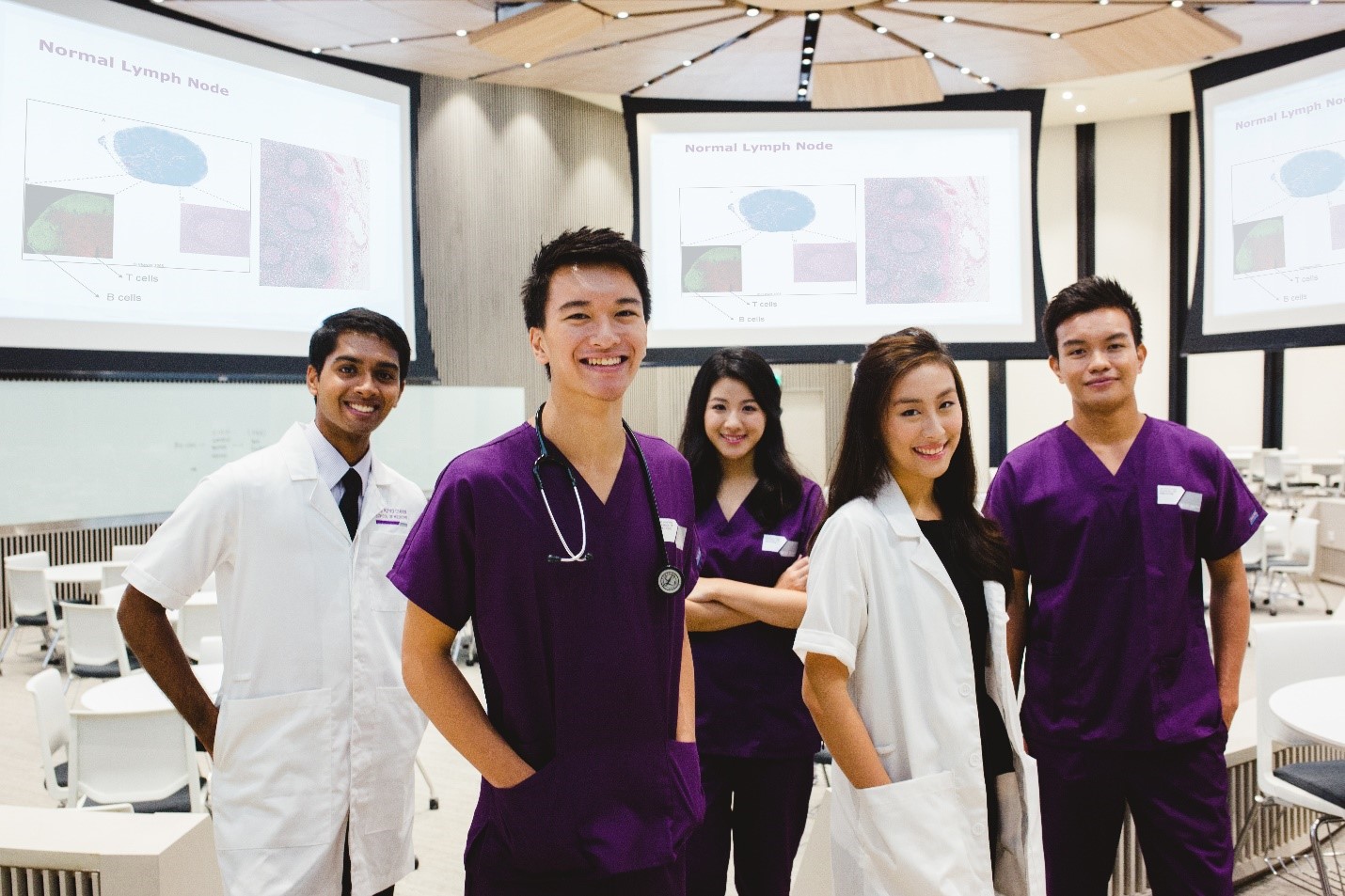
Additionally, in August 2024, Professional Growth, a novel initiative aimed at preparing medical students for the challenges of medical practice, will be launched. This programme focuses on cultivating a robust professional identity and enhancing mental resilience through structured discussions, seminars, and clinical transition workshops integrated into the MBBS curriculum.
Professional Growth offers tailored content synchronised with pivotal phases in medical education, such as clinical rotations and entry into the healthcare workforce. Topics covered include burnout prevention, effective strategies for seeking assistance, and coping with grief in the medical field. By providing students with essential tools to navigate the demands of their profession, this programme aligns with national efforts to support junior doctors and prioritise their well-being.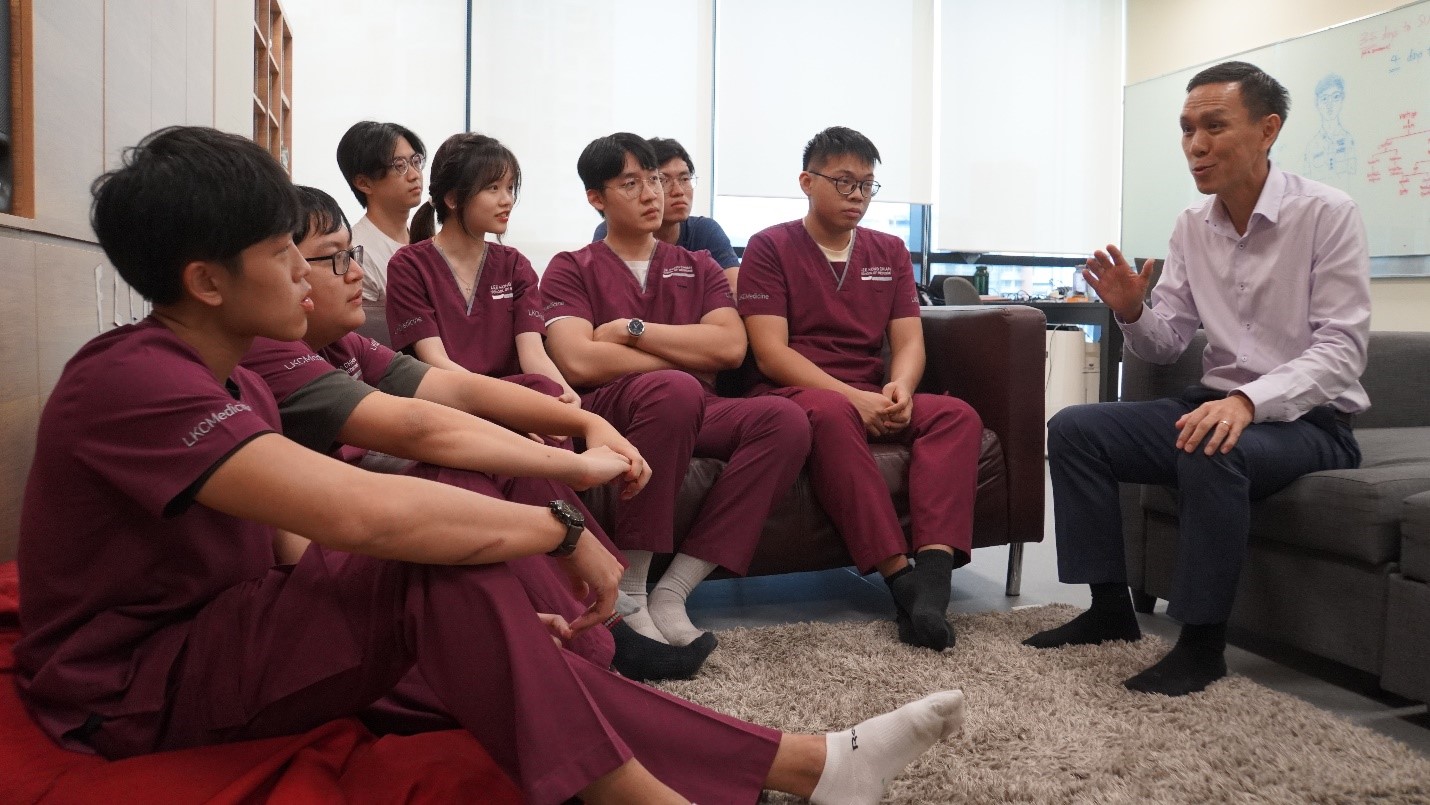
Under the independent MBBS, rigorous quality assurance processes remain integral to the delivery of the programme. Compliance with local quality standards mandated by the Singapore Medical Council, NTU, and LKCMedicine is imperative. To uphold these standards, LKCMedicine will persist in appointing external examiners, drawn from reputable local and international institutions, for academic subjects and professional evaluations. This commitment ensures that the standards of the NTU MBBS programme align with those established by other medical schools recognised by the Singapore Medical Council, maintaining excellence in medical education and practice.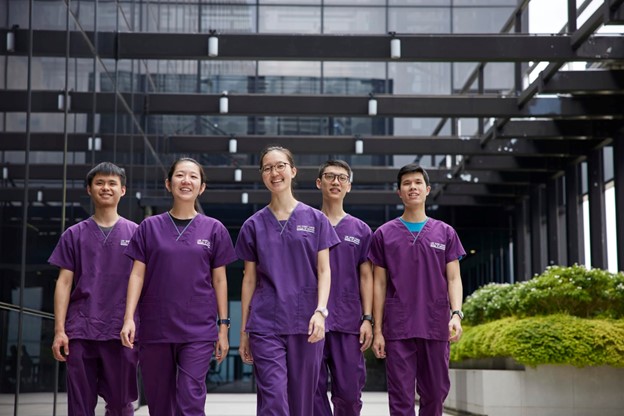
The refreshed curriculum comes on the back of the rapidly developing digital age which aims to expose students to digital health solutions and AI-powered medical technology that are increasingly deployed in the healthcare setting. These innovations will play a crucial role in producing doctors of tomorrow who will shape the landscape of healthcare delivery.
LKCMedicine Vice-Dean for Education, Professor Jennifer Cleland states, “As healthcare and Singapore’s healthcare needs are evolving rapidly, we need to nurture our future doctors to work with technology yet keep patients at the heart of what they do. LKCMedicine’s new MBBS curriculum prepares tomorrow’s doctors to be holistic practitioners, actively engaging with new approaches and new technology, managing uncertainty and pressure, able to problem-solve and find the best solutions in partnership with their patients, and working effectively within Singapore’s healthcare eco-system.”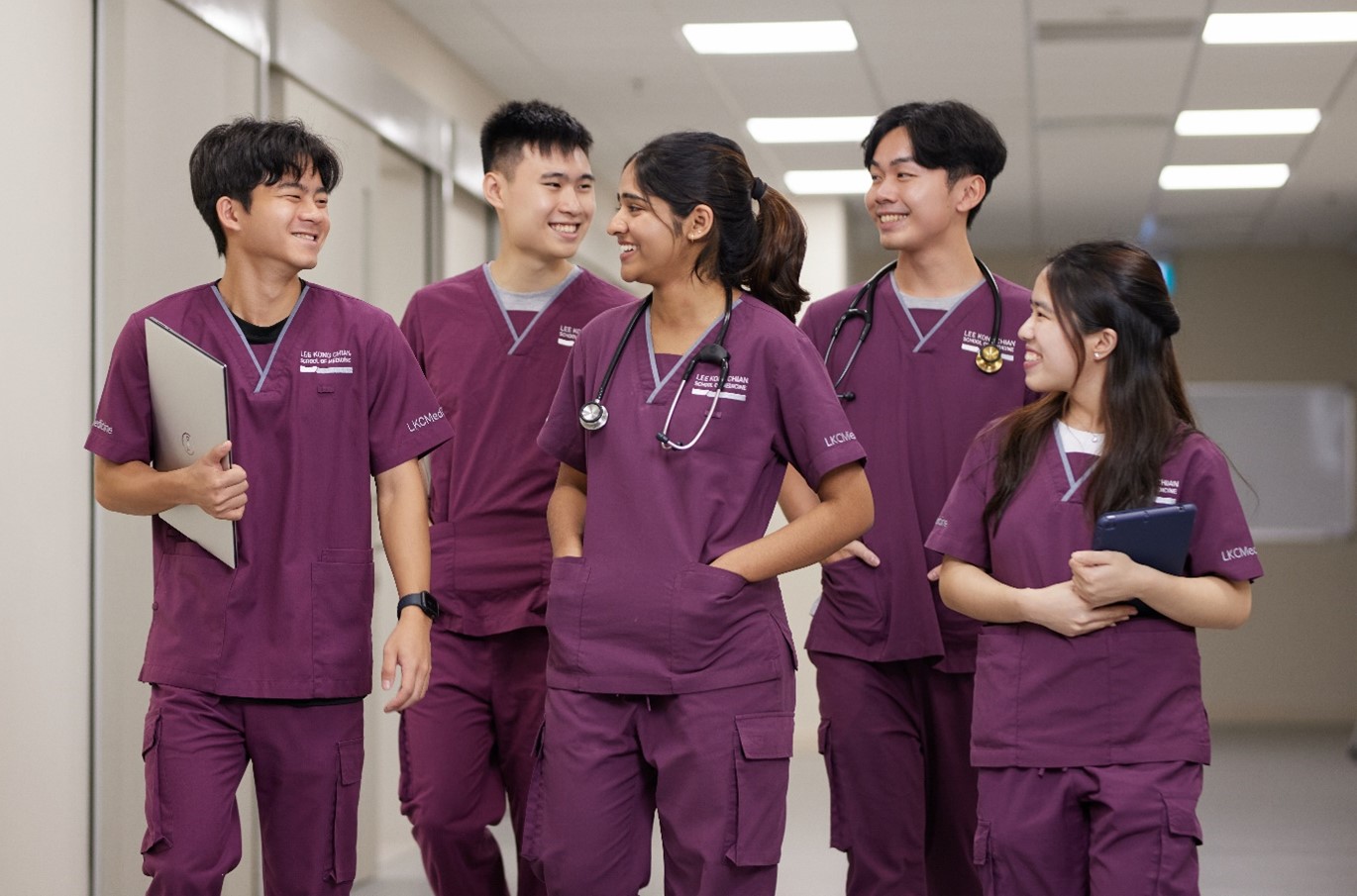
As the School prepares to welcome future cohorts to be trained, it remains committed to offering a modern curriculum characterised by innovative approaches in pedagogy, namely Team-Based Learning (TBL) and other leading-edge technologies. It is also an educational model that focuses on interdisciplinary learning and draws on synergies from the fields of medicine, sciences, engineering, technology, and the humanities,
It remains our aim to nurture doctors who advance the science and practice of medicine for the good of humanity, the doctors you and I would like to have caring for us.
If you have any enquiries on the enhanced curriculum and the independent NTU MBBS degree programme, please submit them here.














/enri-thumbnails/careeropportunities1f0caf1c-a12d-479c-be7c-3c04e085c617.tmb-mega-menu.jpg?Culture=en&sfvrsn=d7261e3b_1)

/cradle-thumbnails/research-capabilities1516d0ba63aa44f0b4ee77a8c05263b2.tmb-mega-menu.jpg?Culture=en&sfvrsn=1bc94f8_1)






